Chanukah and Modern Day Heroes – Elementary/Primary
Abstract
In this lesson students will reflect on the bravery of the Maccabees in their fight for religious freedom and sovereignty over Israel. They will be exposed to numerous examples of acts of bravery demonstrated by Israelis during the Oct. 7th Massacre and asked to draw the connections between the Hasmoneans of the past and modern Heroes of today. Finally, students will consider ways that they may take action in ways that could be considered “ordinary acts of heroism.”
Big Ideas
• Heroism takes on many forms
• Heroism is often carried out by ordinary and exceptional people alike
Essential Questions
- What are the elements that make someone a hero?
- What turns an ordinary act into a heroic act?
In what ways can you be heroic?
Part 1 – Introduction (5 min)
Trigger: Ask students to close their eyes and to imagine the scene that you are about to describe for them.
Continue with a description of a battle scene between the Maccabees and their Syrian- Greek oppressors. You could describe a scene of guerilla-warfare introduced by Judah and his brothers in their efforts to defeat a much larger and stronger army. The teacher can make up the scene. The accuracy of details is far less important than setting the stage to help students visualize what a fight of few against an oppressive overlord trying to secularize its population was like.
Part 2 – Chanukah Story Historical Overview (7 min)
Review with students briefly the history of the conflict between the Jews and Syrian Greeks. Begin with Alexander the Great dividing his empire into three districts that engendered constant fighting between the Seleucids and Ptolemies over dominion over Israel. After Antiochus Epiphanes rested control over Israel describe how he wanted to impose Greek culture and ways on the Jewish population. That included a combination of tempting them with the ‘benefits’ of Helenism and imposing restrictions on the performance of mitzvot like Shabbat and Brit Milah. This engendered a negative reaction by some Jews that led ultimately to the Maccabean revolt in 164/5 BCE. Ultimately this rebellion led to the Jewish defeat of the Syrian Greeks allowing for freedom of religion and (partial) political control of Judea.
Part 3 – Acts of Heroism During the Oct 7th Massacre (10 min)
Describe to students that today in Israel we have an army – the IDF – just like in the days of the Maccabees. Israel today has sovereignty over the land. Furthermore, make the point that today the IDF is like the Maccabees of old. And, like the Maccabees of old, Israel fights against enemies that want to hurt us and take control over Israel for themselves.
To whatever degree appropriate, in an age-appropriate way, describe the current conflict against Hamas and how this conflict began with the Oct. 7th attack.
Describe that there were many Israeli heroes on that sad day and that students will now have an opportunity to meet some of them. Divide students into small groups and task each group with viewing one or two of the short video selections below describing an individual’s heroic story on that fateful day. (video playlist attached to lesson PDF)
Instruct students that they should, in Think-Pair-Share fashion, view and reflect on the videos with the questions below in mind and be prepared to summarize and comment with the whole class the video(s)they viewed.
Ask students to discuss with their study pair:
- How does hearing the story of the person in their video make you feel? Explain.
- Would you define that person as a hero? If yes, explain what about what he/she did, in your opinion, makes them a hero.
- How does the heroism of the people from the video connect with the bravery of the Maccabees?
Part 4 – Full Class Discussion on the Israeli Heroes
Bring the students together for a full class discussion.
Ask each group or chavruta to describe about the person they watched a video on.
Lead a whole class discussion using the following questions:
- Describe what is it about these people and their actions that made them heroes.
- How can these heroes be compared to the heroes of our Chanukah story?
- How did hearing these modern stories of heroism make you feel?
- Do you think when these people began to do the amazing things they did that they thought they would be a hero because of it or called a hero because of it? Why do you think that?
- Did you feel that you wished you could have helped them somehow?
Part 5 – Conclusion and Hero Challenge Project (6 min)
Create a Hero Challenge Project. Point out to students that the individuals in the videos just like the Maccabees did not do their good work because it would make them hero. They did it because the moment moved them to act.
Ask students what they think they can do as individuals and as a class to help Israel during this war. Take down ideas on the white board and ultimately come to agroup decision on how the class will take action.
Conclude the lesson with an exit ticket exercise. Ask students to write down three examples of heroism they learned about over the course of the lesson.
Projector
Internet Connection




